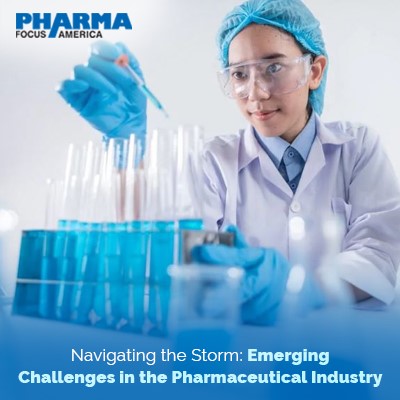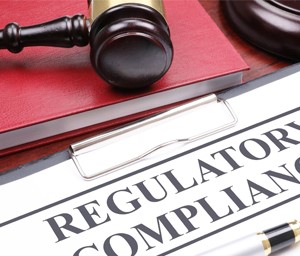
The pharmaceutical industry faces significant challenges, including regulatory complexities, pricing pressures, supply chain disruptions, technological advancements, and antimicrobial resistance. Navigating these issues requires innovative strategies, collaboration, and investment in new technologies. This article explores these emerging challenges and outlines potential solutions to ensure the continued delivery of safe, effective, and affordable medications.

The pharmaceutical industry is a dynamic sector that constantly faces a multitude of challenges. As the landscape evolves, it becomes crucial for industry stakeholders to stay ahead of emerging issues to ensure the delivery of safe, effective, and affordable medications. This article explores the pressing challenges that the pharmaceutical industry is navigating today, including regulatory complexities, pricing pressures, supply chain disruptions, technological advancements, and the rising threat of antimicrobial resistance (AMR).
1. Regulatory Complexities

Regulatory compliance is a cornerstone of the pharmaceutical industry, ensuring that products meet stringent safety and efficacy standards. However, the regulatory environment is becoming increasingly complex, with varying requirements across different regions. The introduction of new regulations, such as the EU’s General Data Protection Regulation (GDPR) and the US Drug Supply Chain Security Act (DSCSA), adds layers of complexity to compliance efforts. Navigating these regulations requires significant investment in legal expertise, technology, and processes to avoid costly penalties and delays in bringing products to market.
Additionally, the global nature of the pharmaceutical market means that companies must navigate a patchwork of regulatory frameworks. Harmonizing these regulations, while maintaining high safety standards, is a significant challenge. Companies must invest in continuous monitoring and adaptability to keep up with changes and ensure compliance.
2. Pricing Pressures and Market Access

The issue of drug pricing remains a hot topic, with governments, insurers, and patients all advocating for more affordable medications. The high cost of drug development, often exceeding billions of dollars, combined with lengthy approval processes, contributes to the high prices of new treatments. Pricing pressures are exacerbated by the need for pharmaceutical companies to recoup their investments and fund future research.
Market access is another significant challenge, particularly in low- and middle-income countries where healthcare budgets are constrained. Ensuring that life-saving drugs are accessible to all who need them requires innovative pricing models, such as tiered pricing or value-based pricing. Pharmaceutical companies must also engage in negotiations with governments and insurers to find mutually beneficial solutions that balance affordability with the need to sustain innovation.
3. Supply Chain Disruptions

The COVID-19 pandemic starkly highlighted the vulnerabilities in global supply chains. Pharmaceutical companies faced unprecedented challenges in sourcing raw materials, manufacturing, and distributing products. Disruptions caused by lockdowns, transportation restrictions, and geopolitical tensions exposed the fragility of supply chains and the need for greater resilience.
To mitigate these risks, companies are re-evaluating their supply chain strategies, including diversifying suppliers, increasing inventory levels, and investing in local manufacturing capabilities. The adoption of digital technologies, such as blockchain, can enhance transparency and traceability, reducing the risk of counterfeit products and ensuring the integrity of the supply chain.
4. Technological Advancements and Innovation

While technological advancements offer immense opportunities, they also present significant challenges. The rapid pace of innovation requires companies to continually adapt and invest in new technologies, such as artificial intelligence (AI), big data analytics, and precision medicine. Integrating these technologies into existing workflows and systems can be complex and costly.
Furthermore, the use of digital health technologies, such as telemedicine and mobile health apps, raises questions about data privacy and security. Ensuring that patient data is protected while leveraging these technologies to improve healthcare outcomes is a delicate balance. Companies must invest in robust cybersecurity measures and stay ahead of evolving threats to maintain patient trust.
5. Antimicrobial Resistance (AMR)

The rise of antimicrobial resistance (AMR) poses a significant threat to global health and the effectiveness of existing treatments. AMR occurs when bacteria, viruses, fungi, and parasites evolve to resist the effects of medications, making infections harder to treat and increasing the risk of disease spread, severe illness, and death. Addressing this challenge requires a multi-faceted approach, including the development of new antibiotics, stewardship programs to ensure appropriate use of existing treatments, and investment in rapid diagnostics.
Pharmaceutical companies face significant scientific and economic challenges in developing new antibiotics, as the market for these drugs is relatively small compared to treatments for chronic diseases. Public-private partnerships, government incentives, and global collaboration are essential to spur innovation and combat the threat of AMR.
Navigating the storm of emerging challenges in the pharmaceutical industry requires a proactive and collaborative approach. Regulatory complexities, pricing pressures, supply chain disruptions, technological advancements, and the threat of AMR all demand innovative solutions and resilient strategies. By embracing change and investing in new technologies, partnerships, and processes, the pharmaceutical industry can continue to deliver life-saving treatments and improve global health outcomes. The future of the industry depends on its ability to adapt to these challenges and seize the opportunities they present.